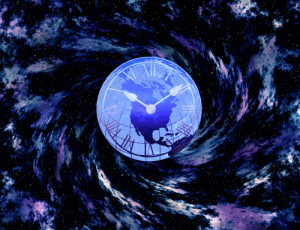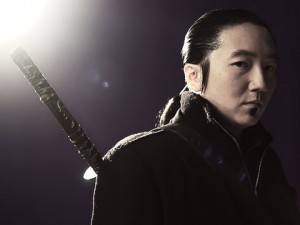 Thanks for joining us! In the last installment, we discussed why an origin story is important for every soon-to-be-memorable character to have. It can be two sentences or ten pages, that’s up to you. It defines the character in a way that guides the player through all manner of difficult choices. Some people believe that that is best handled on-screen / in game. If you don’t have the time you want in game to do this (or if you aren’t comfortable doing this on the fly), a little preparation before the game can go a long way.
Thanks for joining us! In the last installment, we discussed why an origin story is important for every soon-to-be-memorable character to have. It can be two sentences or ten pages, that’s up to you. It defines the character in a way that guides the player through all manner of difficult choices. Some people believe that that is best handled on-screen / in game. If you don’t have the time you want in game to do this (or if you aren’t comfortable doing this on the fly), a little preparation before the game can go a long way.
Before, I mentioned several iconic heroes as examples. My examples were all fine indicators of solo-heroes that are usually the only protagonist in their individual stories. However, you are likely to be starring in an ensemble cast numbering from three to seven or more. If that is the case, you are likely to be sharing a lot of screen time with your fellow players. While there is always room for character development on screen, a little bit of preparation can help inform you of your character’s personality enough to springboard those really awesome quotes, stunts or shenanigans…
If this sounds like too much work for your monthly “I just gotta kill me some zombies/goblins/Necrons” game, it probably is, and I wouldn’t want to see you waste your time. If, however, you are planning on participating in a long running campaign and want to get the most out of your character, he has to be interesting enough to stand the test of time.
Speaking of time, I wanted to show an example of building an origin story between a player and DM for an upcoming super hero game. The DM hasn’t decided on a setting or antagonists yet, he’s waiting to see what his players want from the game… (By the way, working closely with your DM allows you to make sure your character is connected to the group’s story (and that he connects that story to your character), something that our group believes is very important.
John: “Colin, I want to play a guy that can move through time and space. He can time-travel, teleport and freeze time.”
Colin: “Okay, why?”
John: “Well, he’s actually acquired it because of his fixation on time and specifically how his time is being wasted in a place he doesn’t want to be. He feels out of control, like someone else is spending his time for him.”
Colin: “Okay, why doesn’t he just leave the situation and do something else?”
John: “Hhhmm… Oh, that’s it. It’s the family business and he feels like he’s destined for more.”
Colin: “Again, what is keeping him from leaving, it’s just family – why?”
John: “Family… family pride… family honor… Ah ha, he’s a Japanese sarariman working at his father’s corporation. He’s a cubicle wage slave who feels stuck in this dead-end job as the seconds tick by. His father has decided his fate for him.”
Colin: “That’s good… So he just develops these powers through his will alone. With that kind of willpower, why didn’t he just stand up to his father?”
John: “He never knew he had it in him. To this hero, his father was always this domineering figure – stopping time would be easier than defying Father. It was always easier for him to wish that something would happen to him to make him special – a freak lab accident, a radioactive meteor, a hidden genetic potential. Only if he became special would he have the power to decide his own destiny. He focused on time and space to get back what his father took without having to ever confront him.”
Colin: “Very nice. Why is he a hero and not a villain?”
John: “Even though he is 22 years old, he has a child-like innocence to him. An intense belief in right versus wrong fostered by years of love/obsession with comic book super heroes. After developing his powers, he quickly develops a strict ‘Hero’s Code’ that’s similar to a paladin’s or a samurai’s code. Wait a minute, I like that. It’s Hiro’s Code; that’s his name, Hiro…”
Colin: “Great. His youthful innocence and code of ethics is definitely something that I can have fun with…”
 Now at this point, we haven’t yet said why Hiro joins the ensemble (adventuring party) or why he’s ended up in the group’s story. What we have done is helped the player start with a foundation to help inform those decisions and have a personality to conform to or deviate from. To me, seeing Hiro face tough decisions is interesting. Knowing about Hiro’s Code and seeing him put in situations where he has to break from his code and the ensuing struggles of conscious is EPIC. I want to see how this cubicle-dwelling, humble sarariman becomes master of Kensei’s sword (not to mention time and space…) That only means something if I know about his beginnings…
Now at this point, we haven’t yet said why Hiro joins the ensemble (adventuring party) or why he’s ended up in the group’s story. What we have done is helped the player start with a foundation to help inform those decisions and have a personality to conform to or deviate from. To me, seeing Hiro face tough decisions is interesting. Knowing about Hiro’s Code and seeing him put in situations where he has to break from his code and the ensuing struggles of conscious is EPIC. I want to see how this cubicle-dwelling, humble sarariman becomes master of Kensei’s sword (not to mention time and space…) That only means something if I know about his beginnings…

This guy sounds strangely familiar… 😉
Nice example, though.
That’s so cool. I like seeing one of my favorite characters from one of my favorite TV shows drawn up as a character for an RPG! That line of back-and-forth between GM and player was nice to follow.
It makes me want to rethink some of my old characters.
Great stuff, Colin! Hiro is one of my favorite characters, too, and it’s awesome to think about how he might be developed at a game table. . . Sometimes I wonder if that isn’t how things work sometimes in TV, too.
I know I have conversations like this with my GM – and on the rare occasions when I get a game together, my players. Good advice!
It seems like cooperative character building is a fairly new thing, but I spent several years locked in a trunk buried in the yard, so maybe it’s been going on forever. I think this is perfectly excellent, either as a one-on-one with the DM, or as a whole party exercise.
In a recent game, the DM conducted a fluid and dynamic group interrogation, asking us things like, “How do you know [character]?” and “Why don’t you want to be party leader?” and “What are you most ashamed of?” It was a massive improv exercise, and the only rule was you can’t make someone else look foolish and you can’t speak when someone else is answering. It was brilliant.
Dix, there’s a set of games using some variation of the FATE engine that make a lot of assumptions about character/party building that follow along the lines of what we’re discussing here. Really good stuff every one should check out…
Sounds like a future article from one of us…
He who ‘smelt it dealt it!’
*edit
Annnnnd after posting this comment, I read it. Then confirmed I am making no sense.